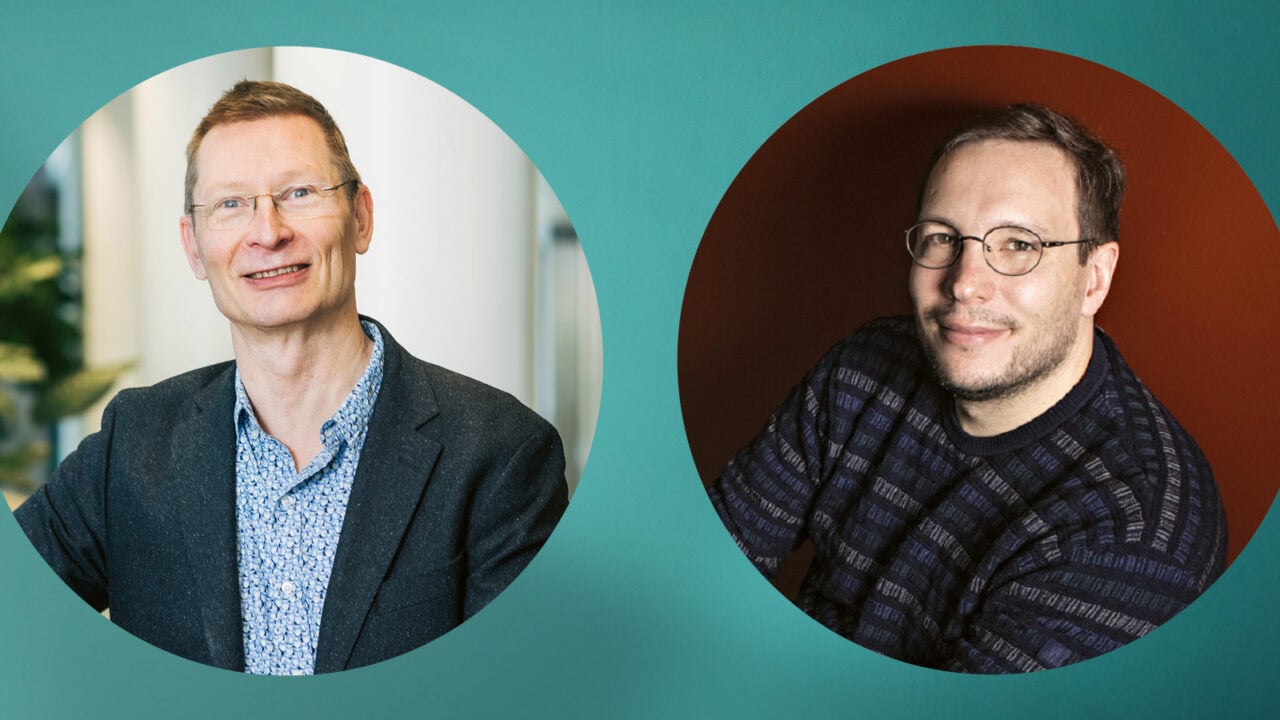Cancer Foundation Finland awards more than €7.7m in grants to support Finnish cancer research
Cancer Foundation Finland today announced a record 7.7 million euros in grants for cancer research. The Cancer Foundation awarded major grants for two research projects: one led by Professor Anssi Auvinen and the other led by Professor Sampsa Hautaniemi. It also awarded several large research grants for research into various cancer diseases and fundamental cancer research.
The annual donations made to Cancer Foundation Finland enable a wide range of support for cancer research projects. This year, the Cancer Foundation received a total of 286 grant applications, and it awarded grants to 108 researchers or research teams.
The Foundation received 178 applications for research grants, including 20 applications for the major grants. In all, 72 projects were funded. Two of the projects were awarded major grants of 450,000 euros. Researchers also submitted 88 applications for dissertation grants, and 36 applications were funded.
The total funding granted comes to 7,737,669 euros, which is more than last year and more than ever before in the history of Cancer Foundation Finland grants.
This year, there were slightly more applications in the fundamental research category than in clinical, patient-centred research. The funded projects represent a roughly equal proportion of clinical and fundamental research projects.
Record number of applications
The Cancer Foundation again received a great deal of applications, the highest-ever number of applications in the Foundation’s history. This underlines the importance of private research funding in maintaining excellent cancer research in Finland.
–Jarmo Wahlfors, the Cancer Foundation’s Research Director, said: “The quality of applications this year continues to reflect the high standards observed in previous years. Although we again funded more than a third of the applications submitted, a regrettably large number of interesting and high-quality projects could not be funded despite the large sum of money distributed.”
-Wahlfors added: “Personalised treatment remains a clear focus area of cancer research; one where computational methods and artificial intelligence play an important role. Many of the funded projects are linked, in one way or another, to this domain of cancer research. A positive observation was also the increased funding for lung cancer projects. This deadly cancer disease was the research theme of this year’s Pink Ribbon campaign, and no fewer than five research projects were funded, indicating a resurgence in research into this cancer.”
The donations made to the Cancer Foundation each year enable extensive support for a diverse array of cancer research projects. As in previous years, most of the funding was allocated to fundamental cancer research, which does not focus on any particular type of cancer and lays the foundations for future breakthroughs and effective treatments, thus benefitting all people with cancer in the long term. Prostate cancer research once again garnered significant funding, with funding granted to as many as twelve projects, including one major grant.
Two major grants
The Cancer Foundation awarded a three-year major grant of 450,000 euros to Professor Anssi Auvinen’s (Tampere University) research project involving a randomised trial of screening for clinically significant prostate cancer.
-Auvinen said: “Our study will investigate whether a novel three-test screening method can be used to discover more aggressive cancers that require treatment and fewer well-differentiated tumours than PSA-only screening. Our ultimate aim is to assess the mortality impact of the screening method. The new method is based on three tests: the first two are blood tests and the last one is an MRI scan. It’s a way to reduce the need for prostate biopsies.
The other three-year major grant of 450,000 euros was awarded from the Pink Ribbon fund to Professor Sampsa Hautaniemi (University of Helsinki) and his research project on the genomic and non-genomic drivers of chemotherapy resistance in ovarian cancer. This fundamental research project will use ovarian cancer as a model to identify gene expression molecules that are specific to different tissues and whose activity can gradually lead to cancer-causing mutations in cell DNA.
-Hautaniemi said: “Our aim is to understand why ovarian cancer becomes resistant to chemotherapy and to find ways to treat chemotherapy-resistant cancer. We’ll study cancer cells by analysing their genetic and epigenetic characteristics. The hypotheses derived from these analyses will be tested with lab-grown organoid models. Our work will lay the groundwork for effective treatments for patients whose cancer has become chemotherapy-resistant.”
The Cancer Foundation awarded significant grants also to other research projects. In making the grant decisions, the Foundation again strived to emphasise multi-year funding periods, favouring predictable and long-term funding for research teams.
-Jarmo Wahlfors said: “Long-term funding reduces the workload associated with securing funding for the research, so that the researchers can focus on their research. On the other hand, it’s very important that we can use short-term funding to attract a wide variety of research topics and research groups. Cancer research is a variable field, and all approaches need to be nurtured to put an end to cancer and the harms it causes. It’s also important to take care of ‘seedlings’, to ensure that new teams with fresh ideas can get funding from the Cancer Foundation.”
Photos:
- Professor Anssi Auvinen (Tampere University). Photo by Laura Tammisto/Studio Torkkeli.
- Professor Sampsa Hautaniemi (University of Helsinki). Photo by Eeva Anundi.
Suomalaisin lahjoitusvaroin toimiva Syöpäsäätiö tukee syöpään sairastuneita ja heidän läheisiään sekä rahoittaa syöpätutkimusta, jotta kenenkään ei enää tarvitsisi menehtyä syöpään. Syöpäsäätiö on merkittävin yksityinen syöpätutkimuksen tukija Suomessa. Syöpäsäätiö muodostaa yhdessä Suomen Syöpäyhdistyksen ja Suomen Syöpärekisterin kanssa Syöpäjärjestöt.

